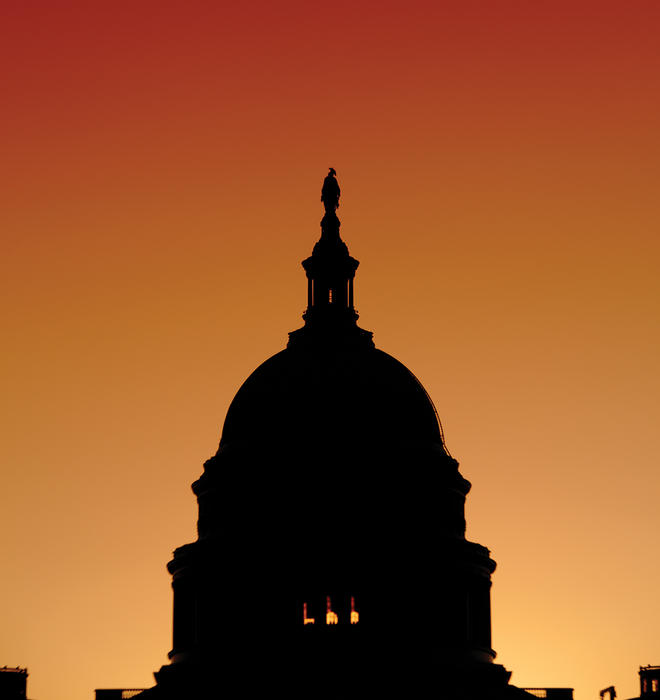
Shedding Light
Five Princetonians on the role of think tanks and pointing the way forward for America
Princeton’s peaceful takeover of Washington’s idea factories was accomplished before scarcely anyone noticed. In January, when Cecilia Elena Rouse started as president of the Brookings Institution, she became the fifth scholar with strong Princeton ties to be running one of the country’s most influential think tanks, those brainy-yet-practical places where today’s research and analysis lead to tomorrow’s national policies and laws. Rouse, who got her bachelor’s and doctoral degrees from Harvard, was dean of the School of Public and International Affairs from 2012 to ’21 and continues to be a professor of economics and public affairs at SPIA.
Six months before Rouse’s ascension at Brookings, Michael Froman ’85 became president of the Council on Foreign Relations, which is headquartered in New York but has a major Washington presence. Robert Doar ’83 was named president of the American Enterprise Institute in 2019. Anne-Marie Slaughter ’80, also a former dean of SPIA, from 2002 to ’09, became CEO of New America in 2013. And in 2012, Sarah Rosen Wartell ’83 was named president of the Urban Institute.
How did this convergence happen?
“I do think, particularly for those of us who were drawn to Princeton because of SPIA, that the Princeton-in-the-nation’s-service-and-the-service-of-humanity ethos is real,” Slaughter says. “It’s been kind of a north star throughout my whole career … . Or perhaps many of us are just inveterate generalists … seeking jobs where we never have to settle down with just one subject.”
Four of the five got undergraduate degrees from SPIA or taught at SPIA — or both. Doar is the outlier; he majored in history. All say their experiences at Princeton provided a foundation for the work they do today.
PAW posed similar questions to each of the leaders in separate interviews to try to understand the nature of this somewhat mysterious and quintessentially Washington creature, the think tank. Such institutions are rarely in the news as much as they have been recently, with the conservative Heritage Foundation’s far-right blueprint Project 2025 roiling the presidential race this fall. The Princeton think tankers discussed why this work is so essential at a time of deep division and polarization in America, and they described how think tanks can help point a way forward for the nation.
What is a think tank, anyway?
Think of think tanks as knowledge brokers operating in the space between academia and government. “Think tanks form that bridge between those who are doing research for research’s sake and those who have to make decisions,” Rouse says. “Our mission fundamentally is about using this evidence to improve policy.”
Rouse has worked on both sides of that bridge — as an academic research economist writing journal articles with long time horizons, and as a member and the chair of the White House Council of Economic Advisers in the administrations of Barack Obama and Joe Biden. Now, at Brookings, she is the bridge. “Think tanks are nimbler,” she says. “They are doing research that is more directly relevant to what the policymakers and decision makers need.”
In May, a Brookings expert on AI and emerging technologies wrote a piece tracing the rise of Russian state media on TikTok. A few weeks later, TikTok announced new limits on state-affiliated accounts, according to news reports. “We don’t often see something that has an impact that immediate, but it clearly happens,” Rouse says.
“Fundamentally, I think people want evidence. So there will always be a role [for think tanks] here.”
— Cecilia Rouse
Think tanks are filled with scores of scholars and analysts working on projects that, depending on the institution, they assign to themselves or are contracted to do by outside agencies or foundations. Their websites might be mistaken for particularly high-protein media homepages, featuring sober white papers sprinkled with punchier blog posts.
The job “is to bring empirical research and strong analysis and commentary to the public debate,” Doar says. He’s a veteran administrator and specialist in safety net programs who came to the American Enterprise Institute, or AEI, after serving as commissioner of social services in the administration of New York City Mayor Michael Bloomberg and commissioner of temporary and disability assistance programs for New York Gov. George Pataki.
“There is a distinction between people who are writing big ideas for the long haul and then there are people that are more active on a daily basis … in the back and forth of the public debate,” Doar says. “We’ve evolved to have a little bit of both here. I think in the past, think tanks only played the long game, were a little ivory towerish. But if you want to have impact, you can’t be that way, because information moves so quickly. … Policy decisions get made, and if you want to be in that discussion, you’ve got to be fast on your feet.” AEI blasts a morning email to 185,000 subscribers highlighting the dozen or so new pieces of work its scholars produced the previous day, and it regularly pitches its experts to appear on television news talk shows.
Think tanks come in different flavors. The Urban Institute is better described as a research organization, Wartell says. Urban was founded in 1968 to marshal data and evidence to promote upward mobility and equity. Its experts tend not to be former government officials offering commentary based on their experience. Rather, she says, Urban’s analysts tackle knotty research projects to recommend solutions to foundations, bureaucrats, elected officials, and activists.
“We have a lot more expertise in the inner workings of government programs and agencies, particularly in the social safety net and social services area,” Wartell says. She came to Urban from another think tank, the Center for American Progress, and previously served on the White House National Economic Council and at the Department of Housing and Urban Development during the Bill Clinton administration.
A think tank is only one component of the Council on Foreign Relations, which includes about 70 fellows producing research, analysis, and commentary, according to Froman. The council also is a membership organization with more than 5,000 paying members, and it’s the publisher of the journal Foreign Affairs. “A think tank at its best does some combination of three things,” says Froman, who was the U.S. trade representative and held other positions in the Obama administration. “One is help set the agenda” — making sure relevant issues reach policymakers, the media, and the public. “The second is shape the debate” — seeing that diverse perspectives are examined and policy tradeoffs are acknowledged. “And the third is to help generate concrete policy ideas for people in government.”
New America styles itself as a “think-and-action tank,” focusing on ideas to help the nation flourish amid social and technological change, Slaughter says. “There are lots of good places that have terrific ideas. We believe that to translate those ideas into actual change, you need an action dimension. You need, in some ways, to be implementing the policies and testing them out before you ever even propose them.” She came to New America after serving as director of policy planning in the State Department from 2009 to ’11 — the first woman to lead State’s internal think tank — under Secretary of State Hillary Clinton.
“‘Think-and-action tank’ at least captures the idea that we are determined to marry our big ideas to action in the service of actual change,” Slaughter adds — an aspiration that all five leaders share.
How does a think tank know it’s making a difference?
Think tank annual reports nearly always include a by-the-numbers section. Here is where they tally books published, op-eds written, webpages viewed, symposiums hosted, podcasts downloaded, and so forth. For example, in 2023, Brookings scholars issued 1,363 commentaries and 356 research reports; the think tank scored 182,000 media mentions; and the Brookings website had 46 million page views, according to its 2023 annual report. That year, AEI scholars published 1,525 op-eds and articles, plus 102 research reports; they testified before Congress 33 times and held 650 briefings for members of Congress, Capitol Hill staff, and agency officials, according to its annual report.
But such metrics don’t tell the full story of a think tank’s effectiveness, the leaders say.
“My way of evaluating impact is, did we have some impact on the public policy decision?” Doar says. For example, in response to Russian aggression against Ukraine, AEI scholars were “extremely active” in offering analysis and commentary arguing that supporting Ukraine “was a good public policy — and that public policy prevailed,” Doar says. On the domestic front, scholars from AEI were skeptical of the recent tax bill that passed the House but failed in the Senate. “We played some role [in the bill’s defeat] along with lots of other people,” Doar says. “The ultimate outcome is we want a better, stronger country.”
Rouse says she thinks of impact “in terms of short term, longer term, and then longest term.” A short term example would be that aforementioned analysis of Russian state media on TikTok. Policy is “a team sport,” Rouse adds, and it’s sometimes hard to tease out whose contribution to the conversation is most decisive. Longer term, she pointed to work by Brookings scholars in the late 1990s identifying the potential impact of making the child tax credit refundable in alleviating child poverty. A version of the idea became part of George W. Bush’s tax cuts, she says. By the time of Biden’s American Rescue Plan in 2021, the credit was expanded, “which had such a profound impact … especially for child poverty,” Rouse says.
“We’re neither Never Trumpers nor Trump cheerleaders. We call them as we see them.”
— Robert Doar ’83
The Urban Institute’s experts also laid groundwork for the child tax credit expansion, Wartell says. “We had a huge influence not so much on whether there was a child tax credit expansion … but on how it was administered, because technical work that we had done in years leading up to that moment ended up becoming very relevant to agencies, the IRS, to even Congress in how they planned the delivery of that assistance.”
Wartell agrees with Rouse that impact can be more than a decade in the making. The American rescue package also gave states the option to expand Medicaid coverage for low-income mothers from 60 days to one year after the birth of a child. Urban began studying that issue in 2018 and produced a major report in 2021. “Now red and blue states have done that … and that impact is a whole bunch of mothers with access to care, which we think will ultimately benefit their children,” Wartell says.
At New America, “we talk about moonshots and milestones,” Slaughter says. “We want our programs to adopt moonshots — big, big goals — and then lay out, here are the milestones that will tell us we’re on our way to achieving those goals.” For years, New America has been studying the merits of ranked choice voting and other nonpartisan changes that could make democracy more representative and less polarized. Now some of those reforms are being adopted in several states and localities.
New America also tries to reverse the standard think tank model that starts with a high-level idea and pushes for implementation on the ground, Slaughter says. Its New Practice Lab investigates what’s not working on the ground to come up with the high-level solution. “You have to start with the people who are actually having the problem,” Slaughter says. “So if you’re talking about housing, you focus on people who have lost their houses … . You ask them what benefits they’re getting, and are those helpful, and what would make a difference.” To find out, the lab sends “sprint teams” of “policy experts, design experts, bureaucracy wranglers, technologists” deep into the weeds of service programs, such as New Jersey’s paid family and medical leave program.
Froman cites several examples of scholars at the Council on Foreign Relations making a difference in setting the agenda, shaping the debate, and informing foreign policy choices. Council fellow Shannon O’Neil’s 2022 book The Globalization Myth: Why Regions Matter arguably has influenced Biden’s Americas Partnership for Economic Prosperity approach to Latin America, Froman says. “It basically reflects a lot of her thinking about how does the U.S. develop an economic framework for dealing with the Western Hemisphere.” The council has hosted robust debates involving its fellows along with outside experts and policymakers on such major questions as how the war in Ukraine should end; the viability of a two-state solution for Israel and Palestine; and the best approach toward China. The council saw its scholars’ ideas migrate into policy when, recently, according to Froman, experts connected with the council helped the administration hammer out international cyber strategy and policies on AI.
“When a fellow comes to me and says, ‘Hey, I wrote that op-ed last week, I’ve gotten five calls from members of Congress, they’ve asked me to come up and brief them because they’re working on legislation relevant to this, and they want my input,’ we see what happens there,” Froman says. “Is that input included in the legislation? Does the legislation get passed? That’s the kind of thing you need to do to be able to satisfy yourself that you’re having the desired impact.”
Are think tanks partisan?
It depends what you mean by partisan. All five of the think tanks led by Princetonians are organized as nonprofits that can receive tax-deductible donations. That means they can’t lobby for bills or do partisan advocacy, though outside advocates freely pick and choose bits of their research to support partisan aims.
Other think tanks take a different approach. They create affiliated lobbying arms that eschew tax-deductible support and practice political advocacy with gusto. A leading practioner on the right is the Heritage Foundation’s Heritage Action for America, which lately has urged supporters to call on Congress to “dismantle DEI.” The larger foundation also organized and led the coalition of right wing groups that fashioned Project 2025 as a governing agenda to radically remake the federal government under a second administration for Donald Trump. On the left, an example of this advocacy think tank approach is the Center for American Progress Action Fund, which recently published a report called, “How Trump and a Project 2025 Lead Author Are Trying To Undermine Checks and Balances Central to U.S. Governance.”
The Princetonian think tank leaders say they haven’t created lobbying affiliates because remaining independent of political parties is vital to their credibility. However, it’s not hard to detect ideological sympathies in the issues that each think tank emphasizes. A place can be literally nonpartisan, in the sense of not being tied to a party, even as its concerns may overlap more with one party or another. The think tank leaders are keenly aware that policy centrism these days is elusive, if not impossible — and probably undesirable.
“Our scholars want to be taken seriously as scholars,” says Rouse of Brookings. “When your work is viewed as being in service of a particular ideology … it runs the risk of there being a question of, ‘Did you really ask all the hard questions about your results? … Did you really look at it from all angles?’”
For example, on the question of the child tax credit, scholars can come to different conclusions about its impact on labor force participation depending on their estimates of technicalities like “labor supply elasticity,” Rouse says. “If you’re viewed as partisan, you’re going to be accused of cherry-picking every time.”
That said, Rouse jokes, she was at a party with a Republican who told her that Brookings is “nonpartisanish.” “And I said, ‘No, really!’” she says. She knows that some people view Brookings as being more left-leaning even though “that’s not how we see ourselves.” It has made her want to double down on making it clear that Brookings evenhandedly considers a range of views. To that end, as an example, over the years, Brookings has collaborated on projects with its neighbor on Massachusetts Avenue, AEI, which is often viewed as leaning right. And it’s why Brookings isn’t following Heritage into the brashly political fray.
“I mean, Heritage is hugely impactful with Project 2025,” she says. “And having [a lobbying arm] really allows you to be in the room [with party strategists] in a way that you can just be unapologetic about it, and that has some appeal. But we also looked at the think tanks that had [lobbying arms], and they struck us as really having more partisan reputations.”
In the end, Rouse says, Brookings decided “we were not ready to give up our nonpartisan part of our identity.”
Brookings created an “Election ’24” section of its website focusing on six issues — the economy, government spending and debt, AI, America’s role in the world, climate, and democracy — at stake this year. The think tank also went on the road with live events devoted to some of the issues. After the government spending-and-debt forum at Miami Dade College in April, students came up afterward and asked where to register to vote. “That was exactly what we were setting out to do,” Rouse says.
Before he became president of AEI, Doar was a lead member of one of those collaborations with Brookings, the AEI-Brookings Working Group on Poverty and Opportunity. Doar says he accepts the label of “right-of-center” for AEI. Partly it reflects the think tank’s dedication to limited government, free enterprise, and a strong America abroad — values historically associated with the right. However, “one of the things that I make clear to people is we’re not on anybody’s team,” Doar says. “We’re neither Never Trumpers nor Trump cheerleaders. We call them as we see them. And some days our scholars call the same issue differently. I have a couple people here that are supportive of a carbon tax, and I have a couple of people here that are very opposed to a carbon tax. And so I let them both produce their work.”
Leading up to the election, AEI’s scholars and analysts kept track of the candidates’ positions. One piece in mid-September found that, from a fiscal point of view, Vice President Kamala Harris’ plans compared favorably with Trump’s. The analysis estimated that Harris would reduce the deficit by $2.5 trillion over 10 years, while Trump would raise the deficit by $1.9 trillion to $3.2 trillion. No matter which party controls the White House and Congress, “there will be a need for nonpartisan, empirical research and policy analysis which helps our elected officials make the correct choices on major issues,” Doar says in a follow-up email. “That’s what AEI does.”
When New America was founded in 1999, it aspired to advance ideas from the “radical center” of policy innovation, Slaughter says. Since then, the center has shifted, possibly disappeared, and “most of what we think is in the public interest is right now closer to where a lot of Democrats are,” she says. Exceptions include New America scholars’ ideas on democracy reforms that could loosen the grip of the two parties, which many stalwarts of both parties oppose. “Mostly I think our goal is not to be predictable,” Slaughter says. “We do not ever want people to say, ‘Oh, well, that’s New America, they’ll take this line.’”
Slaughter continues: “I would love to see a Project 2026 for the 250th anniversary of the Declaration of Independence that was nonpolitical … . Why can’t we have one that is not 900 pages but also is not clearly ideologically driven, that just [offers] ideas that seem to work regardless of where they come from?”
A think tank’s research on contentious topics may be taken up by partisans, but that doesn’t make the think tank partisan, Wartell notes.
A body of research from Urban’s analysts evaluated the impact of work requirements as a condition of receiving public benefits and found they don’t increase the amount of work done by beneficiaries but do create barriers to enrollment, Wartell says. “What you end up doing is reducing the extent to which unemployed people get access to the benefits, and people fall below the poverty line.” The research was widely cited by opponents of work requirements. Wartell calls it “influential work on a political topic that is entirely consistent with Urban’s mission.”
Similarly, a collaboration between Urban and Brookings called the Tax Policy Center evaluated various versions of the Trump administration’s tax cut plan. On Sunday news talk shows, supporters of the plan had to face questions raised by the center, Wartell says. The law “is different today because the policymaking process had to contend with analysis that we were offering into the debate in real time.”
At the Council on Foreign Relations, “if there is a bias here, it’s in favor of U.S. engagement and leadership in the world,” Froman says. That inclination cuts across party lines because, throughout American history, there have been isolationists and internationalists all along the ideological spectrum. The council scheduled four live events in October in battleground states to highlight the foreign policy perspectives of the two candidates. “Our job in a polarized world is … not advocating for one or the other,” Froman says. “It is to make sure that the voters will be better informed or making informed decisions based on hearing from a wide range of perspectives.”
How can think tanks help reduce political polarization?
“We’re not going to hold back because we’re afraid of polarization or of division,” Doar says. At the same time, “facts and empirical evidence and solid research can inform and calm the tensions that exist between people, because they can get people to see that a little bit of their view is correct, and a little bit of the other guy’s view is correct … . I think you need to just be open and listening and engaging people in a civil way.”
“It feels to me like the most polarized moment in my lifetime,” Wartell says. And yet, “it is also the case that I don’t think we’ve ever had a moment in time where the interest in discussion around ‘what does the evidence tell us’ has been higher.” To allay suspicions about potential bias of the experts, she continues, “there is the need to be transparent about methods, about questions, about data use, because two very high-quality scholars who ask a related question in different ways can draw different conclusions from the research they do.”
An antidote to polarization is using evidence to demonstrate what works, Wartell adds. Urban takes on projects to help state agencies reach desired outcomes — from strengthening early care and learning programs in Georgia to improving prison conditions in five states. “State administrators, red or blue, care about their program reaching the people who it’s designed for,” she says.
“We do a lot of work on civic engagement and what we call co-governance, which is really collaborative governance between people and town government,” Slaughter says. “All of that is trying to bring people together in different ways that break through the Democratic, Republican, liberal, conservative scrim through which we all see each other. I’m also very interested in even more personal ways of overcoming polarization. I often argue that you can never persuade somebody if you’re not persuadable, and you’re not persuadable unless you’re willing to say, ‘I’m wrong or I’ve changed my mind,’ which many of us are not so good at doing.”
“What we try and do, in recognizing that there’s a polarization of views, is to highlight what the trade-offs and the implicit assumptions and the possible ramifications of different views are,” Froman says. “So we say, ‘Come get a variety of perspectives on what to do on China,’ as an example. We hate our dependance on Chinese imports. We also hate inflation. The actions proposed to deal with the first may well worsen the second. It’s not our job to say we shouldn’t make that trade-off. Our job is to highlight the trade-off.”
“Fundamentally, I think people want evidence,” Rouse says. “So there will always be a role [for think tanks] here. But I think part of the way that we have to be more strategic about helping people see our evidence is how you write about it so that people can hear it. Write it in a way that’s not confrontational but starts with where they are and uses a language that they can receive and receive the evidence that we have.”
How does your Princeton experience inform your work today?
Think tanks regularly collaborate with scholars based at universities, and Princeton faculty have worked on numerous projects with all five institutions. In addition, the five leaders cite the impact Princeton has had on them individually as scholars and leaders.
Starting at the end of her freshman year, Wartell worked as a research assistant or teaching assistant for various faculty in SPIA. She found herself studying the community development block grant program in New Jersey and school desegregation in Chicago, and she helped a task force revising sex crimes statutes in New Jersey. Her “interest in place and the role place plays in opportunity I think was profoundly shaped by the experiences I had at Princeton,” she says. “I don’t think it’s a coincidence that I ended up at the Urban Institute with the portfolio of work we work on today.”
Froman’s introduction to the Council on Foreign Relations came when he was at Princeton, studying under the late Richard Ullman, a SPIA professor who had been involved with the council. “My interest in going into government and into foreign policy really started at Princeton,” Froman says. “When I think about what I do every day at the council, particularly the think tank part of the council, it all goes back to … policy conferences and policy task forces at the School of Public and International Affairs, where you bring together students and experts to work through challenging policy issues.” In his senior year, Froman recalls, he partnered with Ullman to organize a conference on negotiations that included Cyrus Vance, Zbigniew Brzezinski, and Jimmy Carter. “That very much lit a fire in me to want to be in government and be in the space of foreign policy, which I’ve been in ever since.”
Doar, whose history studies focused on 20th-century America, recalled the many professors who inspired him, including Stanley Katz, Nancy Weiss Malkiel, Valerie Smith, David Van Leer, and Robert Darnton. “That’s informed what I do here,” he says. “I wish I’d worked a little harder,” he jokes, but “they got me interested and got me off to a start.”
Rouse carries her experience as a scholar and dean at Princeton into her leadership at Brookings. “I believe very deeply in the value of the research and the value of evidence,” she says. “Shared governance is something I’m very familiar with, and working with scholars who are independent-minded is something I’m very familiar with.” In addition, “sharing the view that research really can help inform and help decision-makers make better decisions — I really believe that very strongly. That comes from my Princeton roots.”
“I’m a sap when it comes to Princeton,” Slaughter jokes. She says she gets a little teary when she sings “Old Nassau.” “I deeply believe that this is a very special university, and the way it stamps you, because it does stamp you as an undergraduate.” She applied to Princeton to get into SPIA, then veered into academia for a time, as a professor at Harvard Law and then Princeton. “I love the world of ideas … . In the end, I’ve been happier connecting those ideas to action, which I was able to do at [the State Department], and I’ve been better able to do at New America … . I definitely think this is as much a product of being a Princetonian as being an academic was — in many ways more.”
David Montgomery ’83 is a freelance journalist and former staff writer for The Washington Post Magazine.


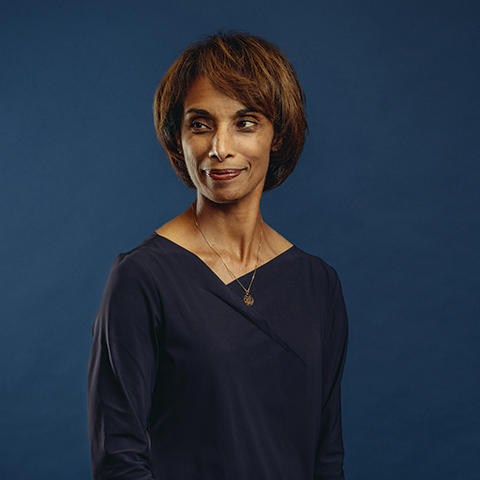
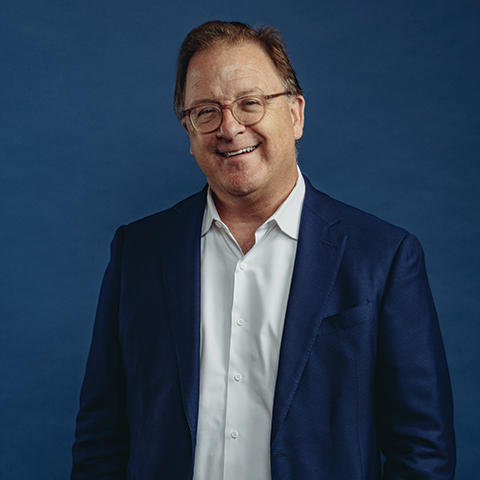
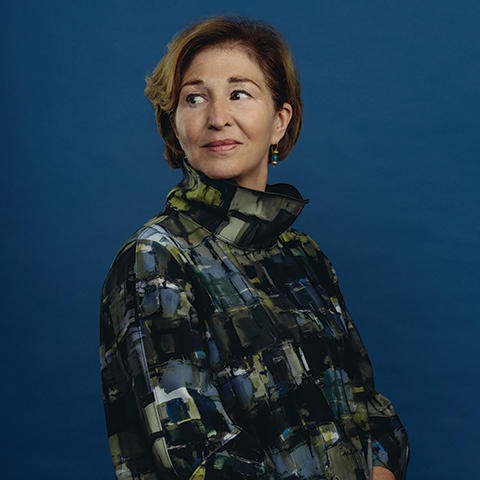
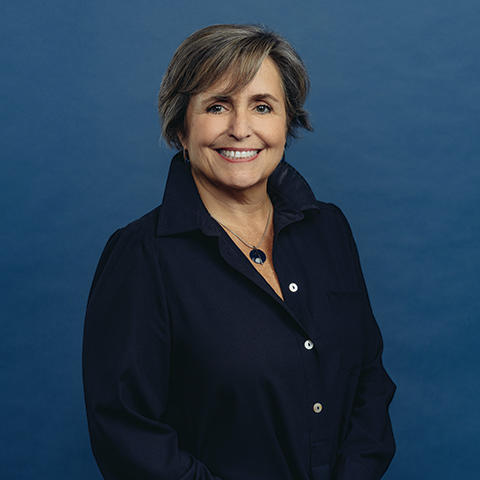
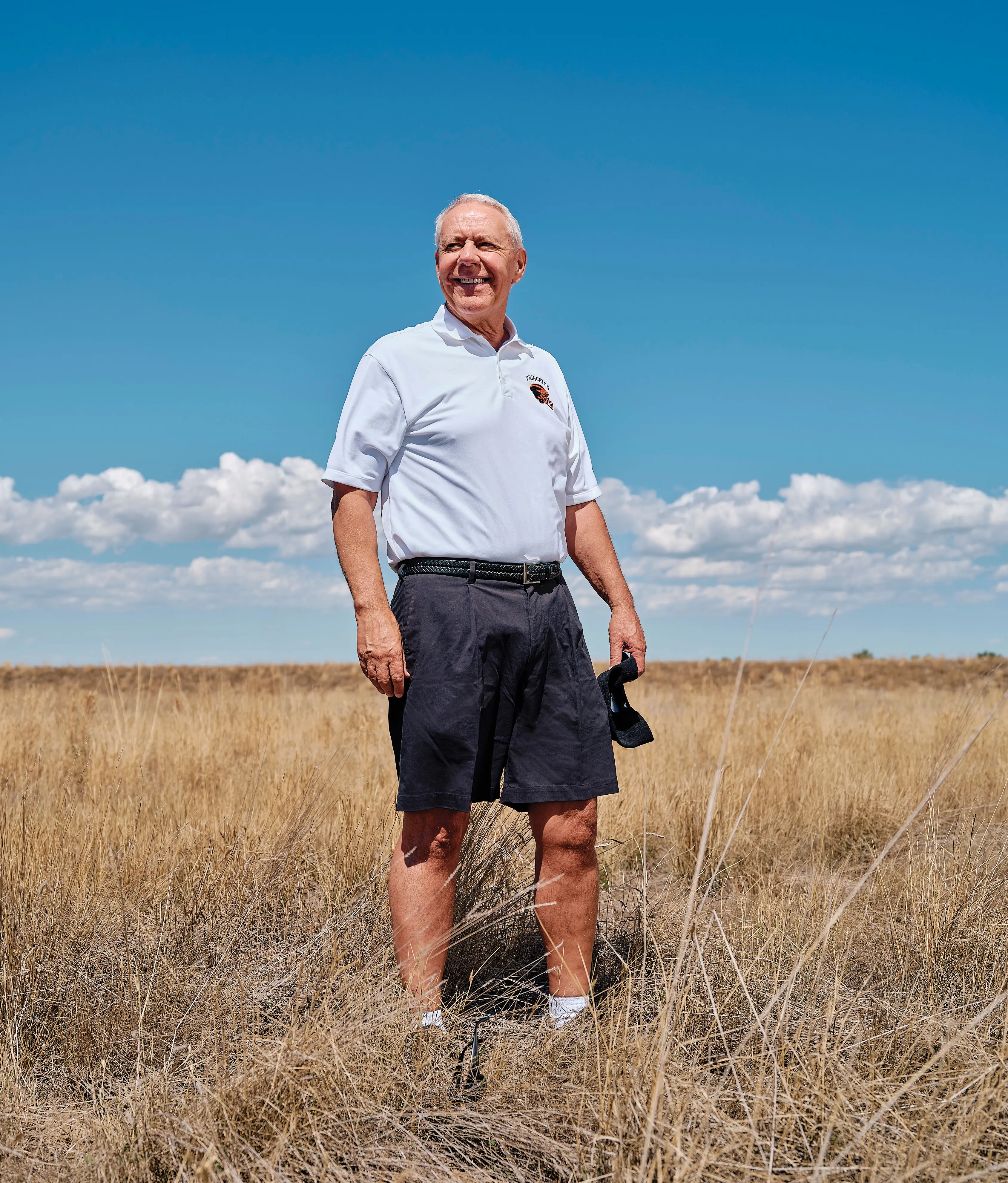
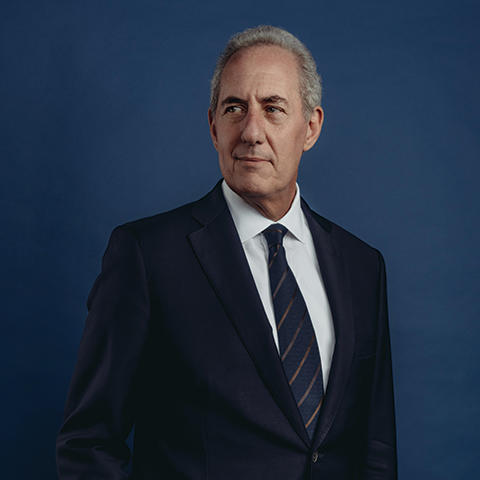




3 Responses
Günther Brandt *74
1 Year AgoFinding the Latest Cover Offensive
I must say I find the cover of the latest Alumni Weekly offensive as it links the power of ideas with militarism.
Are we into new times, am I overly sensitive? Are we heading for raw ideas? Symbols matter!
Ken McCarthy ’81
1 Year AgoThink Tanks’ Rhetoric
Kudos to Lisa Sheehan and PAW’s editors for the November 2024 cover. The image blows through all the smoke and mirrors pretense and gets to the core of what think tanks actually are: weaponized rhetoric in the service of wealthy ideologues.
Robert P. George
1 Year AgoService in Intellectual and Political Life
It’s wonderful to read about the extraordinary representation of Princetonians in leadership roles at leading think tanks. And there’s more. To the five distinguished leaders profiled in “Shedding Light” we can add a sixth, Ryan T. Anderson ’04, president of the influential Washington, D.C.-based Ethics and Public Policy Center. Think tanks, be they conservative, progressive, or nonpartisan, today play an important role in American intellectual and political life. Such a strong representation of Princetonians in leadership positions in the most influential think tanks is good evidence that our University remains “in the nation's service.”